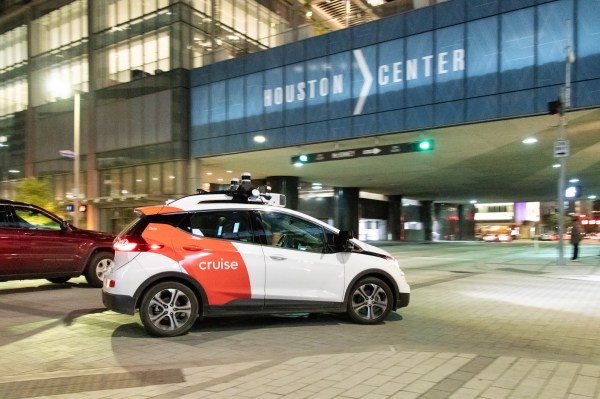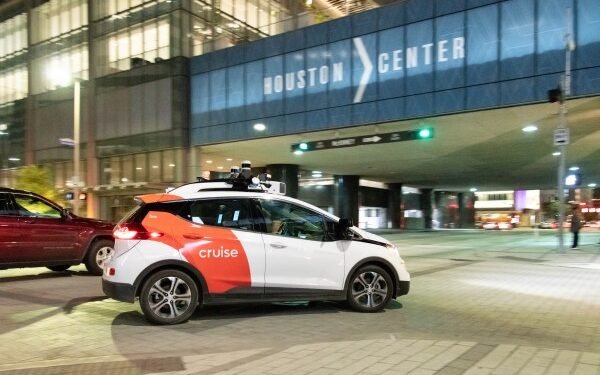
GM’s self-driving car subsidiary Cruise has opened its robotaxi service to users in Houston — an expansion that comes amid increasing criticism of the company’s operations in San Francisco, it’s first launch city.
Cruise said it will operate seven days a week from 9 p.m. to 6 a.m. in limited areas of sprawling Houston, including Downtown, Midtown, East Downtown, Montrose, Hyde Park, and River Oaks neighborhoods. The company; Cruise has about 400 vehicles spread across Austin, Houston, Phoenix and San Francisco. While the company doesn’t break down how many vehicles are in each city, it typically launches in a new city with a small fleet — around a dozen — and scales from there.
Cruise, which is headquartered in San Francisco, expanded into Texas late last year. The company started testing its self-driving Chevy Bolts in Austin, where it added its purpose-built Origin vehicles in spring 2023. In May, Cruise began testing its robotaxis — with a human safety driver behind the wheel — in Houston and Dallas. Cruise then expanded to so-called driverless testing, which means the human safety operator was no longer behind the wheel. The company said that in August it began offering driverless rides to Cruise employees and “select friends and family.”
Cruise said it has driven about 1 million miles in Texas. The announcement Thursday now gives customers the ability to order a driverless robotaxi via the Cruise app. In a bid to boost demand, Cruise is offering $5 flat fares for all trips for a limited time.
Meanwhile, in San Francisco, Cruise is facing a backlash from some citizens and city officials who contend that the robotaxis are not ready for commercial operation in the wake of several incidents involving the vehicles.
Cruise reduced its robotaxi fleet by 50% in San Francisco following a crash with a fire truck — just days after receiving the last permit it needed to commercially operate 24 hours a day and throughout the city. The California Department of Motor Vehicles, the agency that regulates the testing and deployment of autonomous vehicles in the state, requested the reduction in operations. The state agency said at the time it is investigating “recent concerning incidents” involving Cruise vehicles in San Francisco. It called for Cruise to reduce its fleet by 50% and have no more than 50 driverless vehicles in operation during the day and 150 driverless vehicles in operation at night until the investigation is complete.
Cruise was also involved in an incident in early October that left a woman stuck underneath one of its robotaxi after being hit by a human-driven vehicle. A video viewed by TechCrunch showed that the human-driven vehicle struck the pedestrian first; the woman flew over the hood and into the other lane, where the Cruise vehicle braked and then ran over her.









